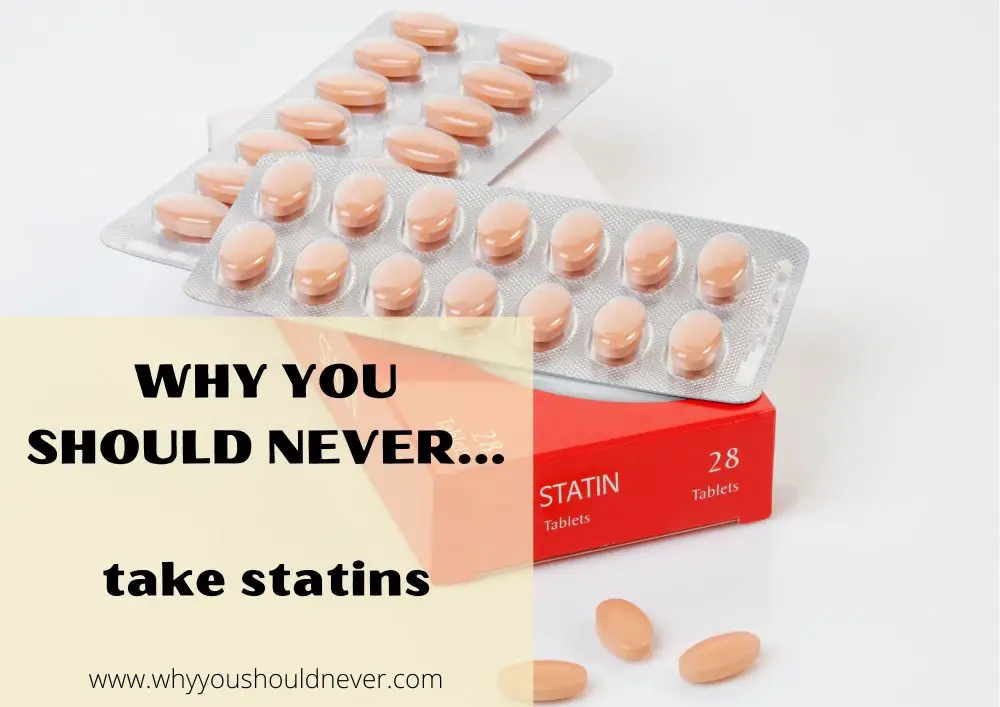![]()
Why You Should Never Take Statins
While there are good reasons for taking statins, such as lowering your cholesterol to avoid heart disease, these drugs can also be dangerous when used improperly or when used by people with certain preexisting conditions.
In this article, we will discuss why you should never take statins, the side effects of taking them, and what doctors have to say on the matter.
What are statins?
Statins are drugs prescribed to lower cholesterol. They work by decreasing the body’s production of LDL (low-density lipoprotein), which is a type of “bad” cholesterol. The function of statin medication is to block the substance that your liver uses to make cholesterol.
Their use is becoming more and more common due to the rise in heart disease cases. Heart disease rates nearly doubled in the 30-year period between 1990 and 2019, going from 271 – 573, according to Web MD.
What are the side effects of taking statins?
The side effects of taking these drugs can be serious and even life-threatening. According to Mayo Clinic, some of these include:
-
Muscle pain/damage (although studies show these are phantom symptoms, i.e. nonexistent)
-
Liver damage – rare but possible in some patients. A liver enzyme test may be required before statin medication is prescribed
-
Type II diabetes – taking statins may increase your blood sugar level, which could lead to type II diabetes
-
Memory loss and brain fogginess – rare and not enough evidence to prove there’s a link between statins and this symptom
Now, there are some factors that determine who is more at risk of having adverse reactions to statins. You’re at greater risk if:
-
You’re over 80
-
You’re a woman
-
You have liver or kidney disease
-
You’re taking several cholesterol-lowering medications simultaneously
-
You drink a lot of alcohol
Why are some doctors against statins?
Some doctors are against statins because of the potentially life-threatening side effects. One such deadly example is rhabdomyolysis – muscle damage that, in rare cases, can lead to kidney failure and death.
For some patients, the risks far outweigh the benefits the drug may provide.
In addition to that, some doctors think that addressing the underlying issues that created the high cholesterol in the first place would be a much better way of tackling the issue.
Are most doctors in support of prescribing statins?
The vast majority of doctors are in support of prescribing statins, particularly to those who:
-
have a form of cardiovascular disease (CVD)
-
have a family history of CVD
-
have type II diabetes
Doctors are also in support of prescribing statins for people over the age 40 whose cholesterol levels exceed 190 mg/dL (milligrams), whether they have heart disease yet or not.
But while statins can play a beneficial role in helping to prevent cardiovascular diseases, their use is still considered controversial among many doctors as the side effects of taking these drugs may outweigh any benefits and improvements they provide for patients.
What are the alternatives to taking statins?
Many doctors recommend adopting a healthy lifestyle, and you can do this by following the necessary heart disease prevention guidelines. Some of these are:
-
eat healthier – cut back on fatty foods that will raise your cholesterol level
-
stop smoking
-
keep your blood pressure down – high blood pressure is the leading cause of stroke, so keeping the levels down will help to prevent this
-
exercise daily – some form of regular physical activity can help to lower your blood pressure
-
cut down on alcohol
-
maintain a healthy weight/BMI
Conclusion
In general, it’s best to avoid taking any form of medication for long periods of time, especially when there are more natural ways of achieving the same goal. By changing your eating habits and doing more exercise, you could essentially eliminate the need for statins.
